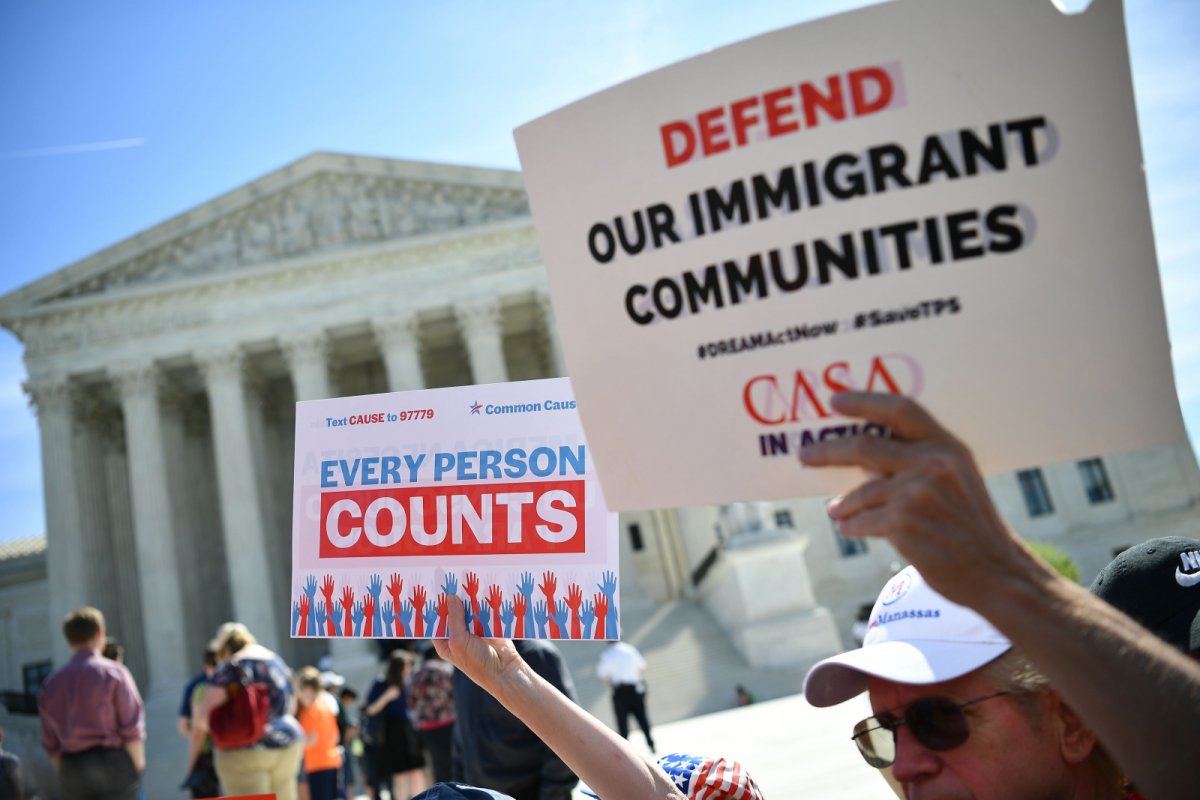Under the Trump administration's crackdown on immigration, immigrant survivors of domestic violence and sexual assault say they are too afraid to turn to police or go to court for help over fears they could be deported out of the country, a new report warns.
According to a nationwide survey carried out in May by the Tahirih Justice Center, more than 76 percent of advocates and attorneys reported that immigrant survivors of domestic violence and sexual assault had expressed concerns about contacting police for help.
Meanwhile, three out of four advocates said immigrant survivors had expressed concerns about going to court for a matter related to their alleged abuser.
The study, which saw a total of 575 advocates and attorneys across 42 states, one U.S. territory and the District of Columbia, surveyed, also found that 59 percent of respondents had recently observed an increase in the number of immigration-related questions their agencies were receiving from immigrant survivors.
The advocates and attorneys reported that survivors said they had an increased fear of deportation and being separated from their children, as well as potentially facing retaliation from their abusers.
For survivors without papers, "perpetrators often exploit their victims' lack of immigration status as a tactic of abuse, maintaining power and control by reinforcing fears of deportation," the report states.
But while Congress recently created new protections for immigrant survivors of domestic violence, sexual assault and human trafficking with the Violence Against Women Act (VAWA) and Trafficking Victims Prevention Act (TVPA), the Tahirih Center found that "new policies are undermining these protections and creating a dangerous climate of fear."
Among those policies, the center said, was a push for local law enforcement officers to become involved in federal immigration enforcement, as well as the legacy of the Trump administration's "zero tolerance" family separation policy, which saw hundreds of children separated from their families at the U.S.-Mexico border.
"This survey shows us the grave chilling effect that recent immigration policy changes are having on immigrant survivors of violence," said Archi Pyati, Chief of Policy for the Tahirih Justice Center in a statement. "This is the message they are receiving: either stay with your abuser or risk deportation."
Senior Director of Public Policy for Casa de Esperanza: National Latina Network Rosie Hidalgo warned that "if immigrants are too afraid to call the police or go to court because of fear of deportation, they become more vulnerable to abuse and exploitation."
"This undermines victim safety as well as public safety and is contrary to our nation's commitment to affording protections for all survivors of domestic violence and sexual assault," Hidalgo said.
Qudsia Raja, Policy Director of the National Domestic Violence Hotline said while the survey's findings were "deeply unsettling, it comes as no surprise that a huge majority (76%) of immigrant survivors are hesitant to reach out to the police for assistance."
"This trend is consistent with what advocates at The Hotline have been hearing on the lines over the past several years," Raja said. "We have serious concerns that reasonable fears of detention, deportation, or family separation is causing immigrant survivors to stay in increasingly dangerous relationships."

Uncommon Knowledge
Newsweek is committed to challenging conventional wisdom and finding connections in the search for common ground.
Newsweek is committed to challenging conventional wisdom and finding connections in the search for common ground.
About the writer
Chantal Da Silva is Chief Correspondent at Newsweek, with a focus on immigration and human rights. She is a Canadian-British journalist whose work ... Read more
To read how Newsweek uses AI as a newsroom tool, Click here.








